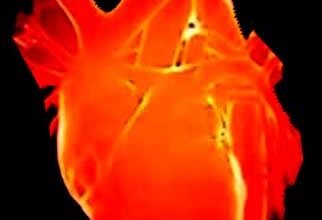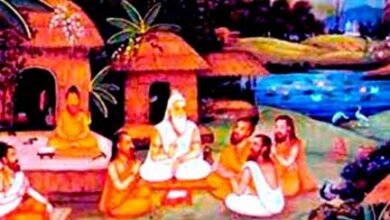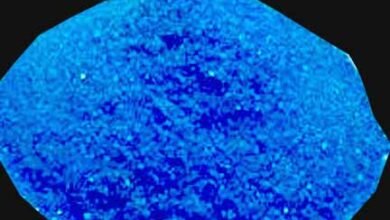
रसायन विज्ञान से संबंधित -85.
| 1. Aqueous villain of which salt turns red litmus blue? = Na2co3.
2. The acidity of an aqueous solution is tested with which device? = pH meter. 3. What is the number of neutrons in one atom of hydrogen? = Zero. 4. The change in which the physical properties of a substance change is called? = Physical change. 5. Atomic weight of which element is used as standard? = Carbon. 6. Which element is the most electrically negative? = Fluorine. 7. Who discovered protons? = Ernest Rutherford. 8. Who discovered the electron? = JJ Thomson. 9. Particle-wave binoculars are found in which particles? = Electron. 10. Chemical name of extinguished? = Calcium oxide. 11. Chemical name of sulfurous acid? = H2SO3. 12. Anti-particle of an electron? = Positron. 13. What is made of the plaster of Paris? = Gypsum. 14. How are two electrons differentiated in an orbit? = Based on the quantum number of the rotation. 15. Contains loggers? = Equal weight numbers but different atomic numbers. 16. Which metal is formed by mixing copper and tin? = Bronze. 17. Is there always a component of an amalgam? = Mercury. 18. The temperature at which solid melts and becomes a liquid is called? = Mailing point. 19. What is the chemical name of ‘hypo’ used in photography? = Sodium thiosulfite. 20. Producer gas is a mixture of = CO + N2. 21. Which fuel is not an element? = Helium. 22. Which acid is found in grapes? = Tartaric acid. 23. Who gave the ‘Law of Octaves’? = Newlands. 24. The process of melting is called kaya? = Compilation. 25. Chemical name of ‘baking soda’? = Sodium carbonate. =========== ============== ============== 1. किस लवण का जलीय विलियन लाल लिटमास को नीला कर देता है? = Na2co3. 2. जलीय विलियन की अम्लता का परीक्षण किस उपकरण से किया जाता है? = pH मीटर. 3. हाइड्रोजन के एक परमाणु में न्यूट्रोनों की संख्या कितनी होती है? = शून्य. 4. वह परिवर्तन जिसमें किसी पदार्थ के भौतिक गुणों मे परिवर्तन हो जाता है उसे कहते हैं? = भौतिक परिवर्तन. 5. किस तत्व का परमाणु भार मानक के रूप प्रयोग किया जाता है? = कार्बन. 6. कौन-सा तत्व सर्वाधिक विधयुत ऋणात्मक होता है? = फ्लोरीन. 7. प्रोटोन की खोज किसने की थी? = अर्नेस्ट रदरफोर्ड. 8. इलेक्ट्रॉन की खोज किसने की थी? = जे० जे० थॉमसन. 9. कणीय-तरंग की द्विप्रकृति किन कणों में पाई जाती है? = इलेक्ट्रॉन. 10. बुझे चुने का रासायनिक नाम? = कैल्शियम ऑक्साइड. 11. सल्फ्यूरस अम्ल का रासायनिक नाम? = H2SO3. 12. इलेक्ट्रॉन का एंटी-पार्टिकल? = पोजीट्रोन. 13. प्लास्टर ऑफ पेरिस किससे बनता है? = जिप्सम. 14. किसी कक्षा में दो एलेक्ट्रोनों में अंतर कैसे किया जाता है? = प्रचक्रण क्वान्टम संख्या के आधार पर. 15. संभारकों में होता है? = समान भार संख्याएं किन्तु विभिन्न परमाणु संख्याएं. 16. तांबा और टिन मिलाने से किस धातु का निर्माण होता है? = कांसा. 17. किसी अमलगम का एक घटक सदा होता है? = मरकरी. 18. जिस तापमान पर ठोस पिघलकर द्रव बन जाता है उसे कहते हैं? = मेलटिंग पॉइंट. 19. फोटोग्राफी में प्रयुक्त किया जाने वाले ‘हाइपो’ का रसायनिक नाम है? = सोडियम थायोसाल्फ़ाईट. 20. प्रोड्यूसर गैस किसका मिश्रण है? = CO+N2. 21. कौन-सा ईंधन तत्व नहीं है? = हीलियम. 22. अंगूर में कौन-सा एसिड पाया जाता है? = टार्टरिक अम्ल. 23. किसने ‘ओक्टेव्स का कानून’ दिया था? = न्यूलैंड्स. 24. गलने की प्रक्रिया को काया कहा जाता है? = संगलन. 25. ‘बेकिंग सोडा’ का रसायनिक नाम? = सोडियम कार्बोनेट.
|





